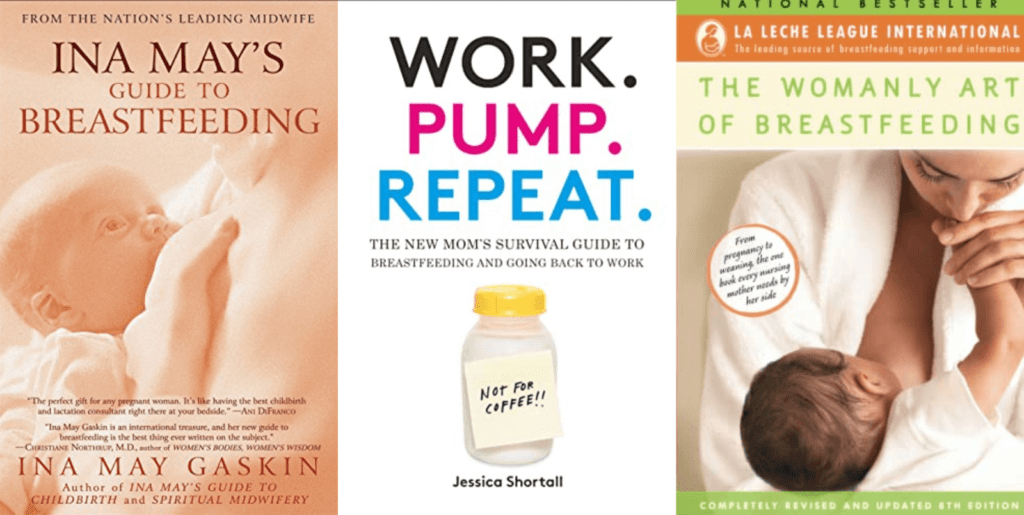In this post, you’ll find the answer to the question “Why Is My Baby So Squirmy While Nursing?”
Why Is My Baby So Squirmy While Nursing?
1. Hunger
If the baby is hungry, they may be squirmy while nursing as they try to latch on and drink milk quickly.
Babies have small stomachs that fill up quickly, so they may need to feed more often to satisfy their hunger.
2. Discomfort
Babies may squirm if they are uncomfortable due to a wet or dirty diaper, tight clothing, or a position that puts pressure on their body.
3. Distractions
Babies are naturally curious and easily distracted. They may squirm while nursing if there are loud noises, bright lights, or interesting things happening around them.
Related: 10 Tips For Successful Breastfeeding
4. Overstimulation
If a baby is overstimulated, they may become squirmy while nursing as a way to release excess energy or cope with the stimulation.
There are several factors that can contribute to overstimulation during breastfeeding. One possible factor is a busy or noisy environment, such as being in a crowded room or having siblings playing nearby. Bright lights or excessive visual stimuli can also overwhelm a baby’s senses.
5. Need for movement
Some babies have a natural need for movement and may squirm while nursing to fulfill that need.
This can be seen especially when they reach a certain age and become more aware of their surroundings.
6. Gas or discomfort
Babies may squirm while nursing if they have gas, indigestion, or other tummy troubles.
The movement helps alleviate the discomfort they are experiencing.
7. Teething
When babies start teething, they may squirm while nursing due to the discomfort or pain in their gums.
They might also use nursing as a way to soothe their sore gums.
Related: How To Combine Breastfeeding And Pumping?
8. Developmental milestones
During certain developmental milestones, such as learning to crawl or walk, babies might become more squirmy while nursing because they are excited about their newfound abilities.
9. Growth spurts
Babies go through growth spurts where they need more milk and may nurse more frequently.
During these periods, they may squirm to get more milk or stimulate milk production.
10. Sleepiness
If a baby is tired while nursing, they may become squirmy as they try to fight sleep or find a more comfortable position.
Related: Top 8 Breast Pumping Tips For New Moms
Tips For Dealing With A Squirmy Baby While Nursing
1. Find a comfortable position
Experiment with different nursing positions to find one that is comfortable for both you and the baby.
This can help reduce squirming and allow for a better latch.
2. Minimize distractions
Create a calm and quiet environment while nursing to minimize distractions that may cause your baby to squirm.
Turn off the TV, lower the volume on any background noise, and dim the lights if needed.
Related: How To Massage Engorged Breasts?
3. Burp your baby
If your baby is squirmy during nursing, they may have excess gas or discomfort.
Take short breaks during the feeding to burp your baby, which can help relieve any trapped air and make them more comfortable.
4. Try different feeding intervals
Some babies may become squirmy if they are feeding too frequently or not frequently enough.
Pay attention to your baby’s hunger cues and adjust the feeding intervals accordingly.
5. Engage your baby
Babies may squirm if they are bored or want more interaction.
Talk, sing, or gently stroke your baby’s face or body while nursing to keep them engaged and focused.
Related: When Does Breastfeeding Get Easier? A Guide for New Mothers
6. Check the latch
A poor latch can cause discomfort for both you and your baby, leading to squirming during nursing.
Make sure your baby has a deep latch and seek help from a lactation consultant if necessary.
7. Use gentle pressure
Some babies crave gentle pressure when they are squirmy.
You can try holding their hands or applying gentle pressure to their back or tummy to provide comfort while nursing.
8. Take breaks
If your baby becomes too squirmy during nursing, it’s okay to take short breaks and try again in a few minutes.
Allow them to settle down before resuming the feeding.
9. Stay calm and patient
Remember to stay calm and patient while nursing your squirmy baby. Babies can sense your emotions, and if you become tense or frustrated, it may exacerbate their squirmy behavior.
Take deep breaths and remind yourself that it’s a temporary phase.
Related: Breastfeeding Resources (Information, Apps, Books, Podcasts)
Conclusion
It’s important to remember that each baby is unique, and their reasons for being squirmy while nursing may vary.
If you have concerns about your baby’s behavior during feeding, it is always a good idea to consult with a pediatrician or lactation consultant for guidance.




